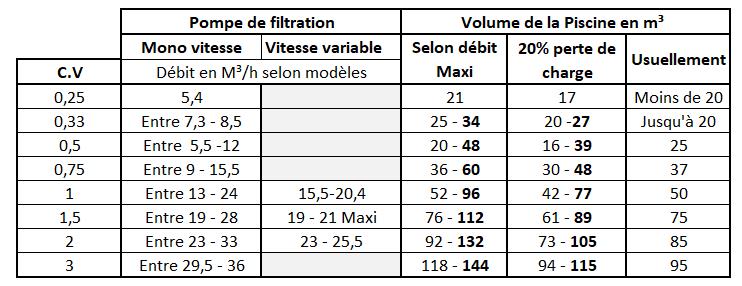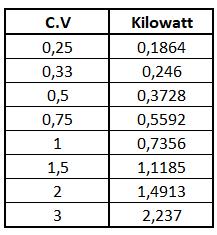
Why is the power of the filtration pump important?
The swimming pool filtration pump is essential equipment for the general functioning of the swimming pool. The power and implicitly the flow rate of the device are the first criteria to study to fully understand how to choose the swimming pool filtration pump best suited to your installation. All the performance expected from this equipment, however high-end it may be, remains in vain or mediocre if the power to circulate the water is too low.
What is power?
The electrical consumption of the swimming pool filtration pump is expressed in watts, while the power is noted in "HP" (horsepower).
The more powerful the filtration pump, the faster the water circulates. Be careful though, the power must be in line with the volume of water in the pool but also with the flow rate of the device and that of the pool filter. Depending on needs, the nominal power of a pump is 0.25 HP and up to 3 HP for the most powerful.
What is the useful power of the filtration pump for my swimming pool?
Depending on the volume of water in the swimming pool, the power (and flow rate) of the filtration pump must adapt to the specific conditions of the swimming pool: the distance from the technical room and the configuration of the pipes (diameter of the pipes, number of branches, elbows, tees, etc.). When the configuration of the swimming pool is unusual, the power of the pump can be overestimated so as to be able to increase the flow rate by 20% and thus obtain perfect operation of the filtration system.
Depending on the pool pump models, for the same power, the flow rate is different.
At the same flow rate, it is preferable to opt for the filtration pump with the highest power.

Generally:
- For a ride-on swimming pool, a filtration pump with a power of 0.25 or 0.33 HP is often the most suitable.
- For an above-ground pool, a 0.33 or 0.50 HP pump is recommended, or even 0.75 HP for larger ones.
- For in-ground swimming pools, circulation pumps are 1 HP and up to 3 HP.
Power not suitable for the swimming pool
To prime the engine, the filtration pump must be sufficiently powerful. Otherwise, water cannot circulate.
The filtration pump wears out more quickly if the power adopted is too low. Likewise, the water quality is poor and the suction power of the hydraulic robot or the vacuum cleaner is poor.
A filtration pump that is too powerful compared to the filter can overload the filter. Water passes too quickly through the filter media (for example, sand) which does not properly retain impurities. The water is not properly cleaned and returns to the pool, leaving “cloudy” water.
How to calculate the consumption of the swimming pool filtration pump
 We know the power of the circulation pump, it is noted in the maintenance instructions and on a plate welded to the machine.
We know the power of the circulation pump, it is noted in the maintenance instructions and on a plate welded to the machine.
Each power has a correspondence in kilowatt/hour. You just need to know:
- the number of operating hours of this equipment (NH) in days, weeks, etc.
- consumption in watts per hour (attached table) (W)
NH X W = Consumption
Power is a fundamental element in the choice of filtration pump, just like flow rate. Relying on the skills of swimming pool professionals is an undeniable asset, they can confirm your choice and avoid errors of compatibility, over or under power... The filtration pump is the guarantor of the cleanliness of the water and the good circulation of disinfectant products in the swimming pool.
To correctly choose the swimming pool filtration pump best suited to your installation, it is also essential to know what flow rate for the swimming pool filtration pump to take into account. Different types of swimming pool filtration pumps exist. To help you in your choice, let's compare the centrifugal versus self-priming filtration pump and analyze the differences between single speed filtration pump versus variable speed pump.
